In the world of dietary supplements, certifications play a vital role in ensuring that products are safe, effective, and produced in accordance with industry standards. As a leader in the gummy supplement industry, Nutreebio understands the importance of quality assurance and regulatory compliance. With nearly 10 years of experience in producing high-quality supplements, we recognize that certifications not only help build consumer trust but also ensure that supplements meet regulatory and quality standards. In this guide, we'll explore five of the most important dietary supplement certifications: FDA, HACCP, ISO, NSF, and GMP.
| Certification | Role for Supplements |
|---|---|
| FDA | Ensures supplements are safe and properly labeled. |
| HACCP | Provides a systematic approach to food safety, including supplements. |
| ISO | Sets international standards for quality management and product consistency. |
| NSF | Tests supplements for purity and safety to ensure they meet high standards. |
| GMP | Establishes good manufacturing practices to ensure product quality and safety. |
1. FDA
The U.S. Food and Drug Administration (FDA) is a crucial regulatory body that oversees dietary supplements, ensuring their safety, labeling, and health claims. However, it's important to understand what the FDA's role actually entails in the supplement industry and how it impacts both manufacturers and consumers.
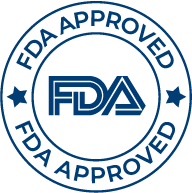
1.1 Are Dietary Supplements Regulated by the FDA?
Yes, dietary supplements are regulated by the FDA, but not in the same way as pharmaceuticals. While the FDA does not approve supplements before they are sold, it regulates the industry through dietary supplement health and safety regulations.
Dietary supplements are regulated by the FDA under the Dietary Supplement Health and Education Act (DSHEA). However, unlike prescription drugs, the FDA does not approve dietary supplements before they are sold to consumers. Instead, the FDA ensures that products meet safety standards by monitoring the labeling and claims made by manufacturers. The responsibility lies with the manufacturers to ensure that the supplements are safe for consumption and are produced under proper manufacturing conditions. The FDA steps in only if a supplement poses a risk to public health or if it makes false or misleading claims. Therefore, while the FDA plays a critical role, dietary supplements are not as closely regulated as pharmaceutical drugs.
1.2 How Do I Know if My Supplement is FDA Approved?
The FDA does not "approve" dietary supplements. Instead, it ensures that products are safe, properly labeled, and free from harmful substances. Look for proper labeling and third-party testing to ensure the product meets safety standards.
Unlike pharmaceutical drugs, dietary supplements are not FDA-approved before they hit the market. The FDA doesn't evaluate the safety or efficacy of a supplement before its sale. However, manufacturers must ensure that the supplement is safe for consumption and meets the FDA's Good Manufacturing Practices (GMP) standards. To determine if a supplement is safe and compliant, check for third-party testing certifications and a clear, accurate label. Additionally, the FDA requires manufacturers to report any adverse effects or health risks associated with their supplements. You can also look for FDA-regulated terms like “FDA registered facility,” but remember that does not equate to FDA approval.
1.3 Can You Sell Supplements Without FDA Approval?
Yes, supplements can be sold without FDA approval, but they must meet safety standards, be properly labeled, and not make false health claims. The manufacturer is responsible for ensuring compliance.
In the United States, manufacturers are not required to seek FDA approval before marketing their products. However, supplements must still comply with the FDA's Dietary Supplement Health and Education Act (DSHEA), ensuring that they are safe for consumption and accurately labeled. Manufacturers are responsible for the safety of their products, and the FDA monitors them for compliance. The FDA also requires that supplements do not make false claims regarding their health benefits. Therefore, while the FDA does not pre-approve supplements, it plays an oversight role by enforcing regulations and ensuring that supplements are free from harmful substances.
2. HACCP
HACCP (Hazard Analysis and Critical Control Points) is an essential food safety management system that helps ensure the safety and quality of dietary supplements. In this section, we'll explain the role of HACCP in nutrition, whether it's required for supplements, and how it differs from other standards like GMP.
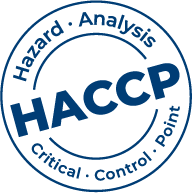
2.1 What is HACCP in Nutrition?
HACCP is a food safety management system that identifies and controls potential hazards in the production process. In nutrition, HACCP ensures that dietary supplements are free from contaminants and safe for consumption.
HACCP, which stands for Hazard Analysis and Critical Control Points, is a proactive system used to ensure the safety of food and supplements by preventing hazards before they can affect the product. In the context of nutrition and dietary supplements, HACCP involves identifying potential hazards—such as biological, chemical, or physical risks—at every stage of the production process, from ingredient sourcing to the final product. Once identified, manufacturers implement controls to manage and eliminate these hazards. The goal is to reduce the risk of contamination or harmful substances in the final supplement, ensuring that it is safe for consumers. The HACCP system provides a scientific, risk-based approach that complements other safety standards like Good Manufacturing Practices (GMP), offering an added layer of confidence in the safety and integrity of dietary supplements.
2.2 Is HACCP Required for Dietary Supplements?
HACCP is not always required for dietary supplements, but it is highly recommended, especially for products with higher risk factors like raw ingredients. It helps ensure the supplements are free from contaminants.
While HACCP is not legally required for all dietary supplements, it is highly recommended, especially for supplements that contain raw or unprocessed ingredients. The FDA does not mandate HACCP for dietary supplements, but manufacturers often adopt it to enhance product safety and minimize risks. For supplements that involve complex production processes or those that are likely to be contaminated during manufacturing, HACCP is an essential safety measure. In some cases, HACCP certification may be a requirement for international markets or specific types of supplements. By implementing HACCP, manufacturers can reduce the likelihood of contamination and ensure the safety of their products for consumers.
2.3 What is the Difference Between HACCP and GMP?
HACCP focuses on food safety by controlling potential hazards, while GMP (Good Manufacturing Practices) outlines broader guidelines for maintaining quality and consistency throughout the production process.
Although HACCP and GMP (Good Manufacturing Practices) both aim to ensure the safety and quality of dietary supplements, they differ in their focus and scope. HACCP is a hazard management system specifically designed to identify, evaluate, and control risks during the production of dietary supplements, particularly hazards like contamination from microbes, chemicals, or foreign objects. On the other hand, GMP encompasses a broader set of standards that focus on maintaining consistency, quality, and safety throughout the entire manufacturing process, including personnel training, sanitation, equipment maintenance, and record-keeping. While HACCP is a proactive system focused on identifying risks, GMP ensures overall operational excellence and product consistency. Many companies implement both HACCP and GMP to create a robust quality assurance framework.
3. ISO
ISO certifications are globally recognized standards for quality management and consistency, and they play a critical role in ensuring that dietary supplements meet international quality and safety standards. In this section, we’ll explore the different types of ISO certifications and explain what an ISO supplement is.
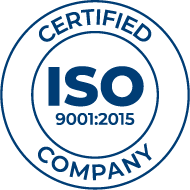
3.1 How Many Types of ISO Certifications Are There?
There are various types of ISO certifications, and each one serves a distinct purpose, helping companies maintain high standards in their operations. These certifications help companies demonstrate their commitment to quality, safety, and continuous improvement. For dietary supplements, the 5 most relevant ISO certifications include:
- ISO 9001: This certification focuses on establishing a quality management system (QMS) to ensure consistency and continuous improvement in the manufacturing of supplements.
- ISO 22000: A vital certification for companies that produce dietary supplements, as it focuses on food safety management across the entire supply chain, ensuring that products are free from contaminants and meet the required safety standards.
- ISO 14001: While primarily concerned with environmental management, this certification ensures that a company’s production processes are sustainable and minimize environmental impact, which is essential for companies looking to maintain eco-friendly practices.
- ISO 13485: This certification is generally relevant for companies involved in medical devices, but it also applies to supplement packaging and ensures that packaging materials meet regulatory and safety standards.
- ISO 17025: This certification ensures that the testing and calibration of equipment used in the production process meet high-quality standards, helping to ensure that the supplements are manufactured accurately and safely.
| ISO Certification | Description |
|---|---|
| ISO 9001 | Focuses on quality management systems to ensure consistent product quality. |
| ISO 22000 | A food safety management standard for the entire food supply chain. |
| ISO 14001 | Focuses on environmental management practices in production. |
| ISO 13485 | Relevant for medical device manufacturers, including supplement packaging. |
| ISO 17025 | Ensures testing and calibration of equipment used in manufacturing processes. |
3.2 What is an ISO Supplement?
An ISO supplement refers to a product that has been manufactured in compliance with ISO standards, ensuring high quality, safety, and consistency throughout the production process.
When a supplement is produced under ISO-certified conditions, it indicates that the manufacturer follows internationally recognized practices for quality management and operational excellence. This certification ensures that the supplement is free from contaminants, is consistently produced, and meets the expected quality standards every time. Consumers can feel more confident purchasing ISO-certified supplements, as these products are more likely to be safe, effective, and produced under stringent conditions. Manufacturers who follow ISO standards typically use rigorous testing and validation processes to maintain the highest product quality.
4. NSF
NSF International is a widely respected organization that provides certifications for dietary supplements, ensuring they meet stringent safety and quality standards. In this section, we’ll explain what NSF means for supplements, whether NSF certification is required, and how you can get a supplement tested for compliance.
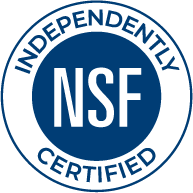
4.1 What Does NSF Mean for Supplements?
NSF stands for National Sanitation Foundation, a non-profit organization that provides certification for dietary supplements. NSF-certified products have been tested for quality, safety, and accuracy of claims made by manufacturers.
NSF International is a globally recognized, non-profit organization that certifies dietary supplements to ensure they meet high safety and quality standards. When a supplement is NSF certified, it means that the product has undergone rigorous testing to verify its ingredient list, ensure that it is free from contaminants, and confirm that it complies with manufacturing best practices. The certification process checks for the accuracy of product labels and tests for harmful substances like heavy metals or other potential contaminants. NSF-certified products are trusted by consumers because the certification assures that the product is not only safe but also effective and compliant with industry regulations. This third-party validation builds credibility for both manufacturers and consumers, providing a layer of assurance that the product is both reliable and trustworthy.
4.2 Is NSF Certification Required?
NSF certification is not legally required for dietary supplements, but it is highly recommended. It provides an added layer of credibility and ensures products meet safety and quality standards.
Although NSF certification is not legally required for dietary supplements, it is widely recommended and valued within the industry. This certification adds an extra level of trustworthiness to a product, ensuring that it has passed stringent safety and quality checks. While the FDA regulates dietary supplements to some extent, NSF certification offers a higher standard of assurance, verifying that a product meets not only safety but also consistency and quality criteria. Many manufacturers choose to undergo the NSF certification process to demonstrate their commitment to producing safe and effective products. Additionally, some retailers and international markets may require NSF certification before stocking or selling supplements. Therefore, while it’s not mandatory, NSF certification can greatly enhance a supplement's marketability and consumer trust.
4.3 How to Get a Supplement Tested?
To get a supplement tested for NSF certification, contact NSF International, which will guide you through the testing process to verify the product’s ingredients, safety, and compliance with industry standards.
To get a supplement tested for NSF certification, manufacturers must first contact NSF International to initiate the process. The company will guide them through the necessary steps, including submitting the product for testing at one of NSF’s accredited laboratories. The testing procedure ensures the supplement's ingredients match what is listed on the label and that no harmful substances or contaminants are present. In addition to testing the product itself, NSF will inspect the manufacturing facility to ensure it adheres to Good Manufacturing Practices (GMP). This comprehensive evaluation helps confirm that the supplement meets all necessary quality, safety, and compliance standards. Once a supplement passes these tests, it is granted NSF certification, which allows the manufacturer to market the product with the NSF seal of approval. This process can take several weeks, but it ultimately helps ensure the supplement's safety and reliability for consumers.
5. GMP
Good Manufacturing Practices (GMP) are a set of guidelines that ensure the consistent production of high-quality dietary supplements. In this section, we’ll explore what GMP means for supplements, the key GMP requirements, and whether GMP and FDA regulations are the same.
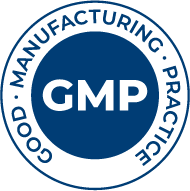
5.1 What Does GMP Mean in Supplements?
GMP stands for Good Manufacturing Practices. In the context of dietary supplements, GMP refers to regulations that ensure products are produced in a consistent and controlled environment, meeting safety and quality standards.
Good Manufacturing Practices (GMP) are a set of regulations that dietary supplement manufacturers must follow to ensure that products are produced consistently, meet safety standards, and contain the right ingredients in the correct amounts. These practices help prevent contamination, mix-ups, and errors during production. When a supplement is made according to GMP standards, it means that the manufacturing facility is regularly inspected and meets rigorous guidelines for cleanliness, sanitation, equipment maintenance, and product testing. GMP ensures that the supplement is safe for consumption and that it will be of consistent quality from batch to batch. This certification is critical for consumer trust, as it assures that the product is manufactured under strict quality control measures and complies with the best industry practices.
5.2 What Are the 5 GMP Requirements?
The 5 main GMP requirements include: 1) Proper sanitation and cleanliness, 2) Consistent quality control, 3) Accurate labeling, 4) Adequate staff training, and 5) Proper equipment maintenance.
The five primary GMP requirements for dietary supplements are designed to ensure that the products are manufactured safely and consistently. These include:
- Proper Sanitation and Cleanliness: The production environment must be kept clean to prevent contamination. This includes sanitizing equipment, storage areas, and the production floor.
- Consistent Quality Control: There must be procedures in place to ensure that each batch of supplements meets the required standards for ingredients, potency, and safety.
- Accurate Labeling: The product label must accurately reflect the ingredients and nutritional information, ensuring transparency and truth in marketing.
- Adequate Staff Training: Employees working in the production process must be trained to follow GMP protocols, handle materials safely, and maintain the quality of the product.
- Proper Equipment Maintenance: Manufacturing equipment must be regularly maintained and calibrated to ensure that it operates correctly and produces products of consistent quality.
These requirements help prevent issues like contamination, incorrect labeling, or improper dosage, which are critical for consumer safety.
5.3 Is FDA and GMP the Same?
No, the FDA and GMP are not the same. The FDA is a regulatory agency overseeing supplement safety, while GMP refers to the practices that manufacturers must follow to ensure product quality during production.
FDA (Food and Drug Administration) and GMP (Good Manufacturing Practices) are related but distinct in their roles within the dietary supplement industry. The FDA is a regulatory body responsible for overseeing the safety, labeling, and advertising of dietary supplements. It ensures that manufacturers comply with laws and regulations to protect public health. However, the FDA does not directly regulate the production process of supplements; rather, it sets guidelines and conducts inspections.
On the other hand, GMP refers specifically to the practices that supplement manufacturers must follow during the actual production process. These practices ensure that products are consistently made with the correct ingredients and meet safety and quality standards. While the FDA sets regulations that manufacturers must follow, GMP provides the framework for how these regulations should be implemented during production. Essentially, the FDA oversees the safety and integrity of dietary supplements, while GMP outlines the operational standards for manufacturers to ensure high-quality products.
Conclusion
In this article, we've explored the five most important dietary supplement certifications that help ensure product safety, quality, and compliance. These certifications, including FDA, HACCP, ISO, NSF, and GMP, each play a critical role in ensuring that supplements are not only safe for consumption but also effective and trustworthy. By understanding these certifications, you can make more informed decisions when selecting dietary supplements for your needs or business.
References:
[1] https://www.fda.gov/industry/fda-basics-industry/registration-and-listing
[2] https://www.iso.org/popular-standards.html
[3] https://www.nsf.org/knowledge-library/what-is-nsf-certification


